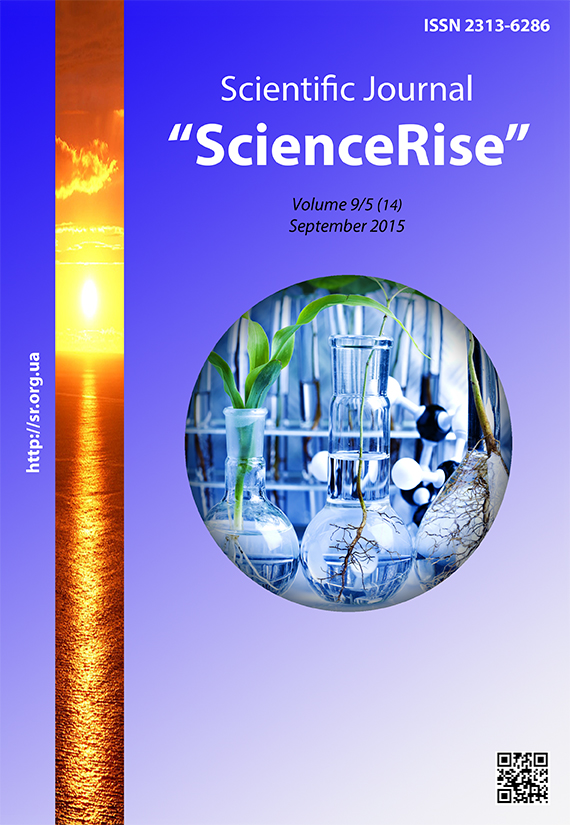Organisational and pedagogical conditions of a safe educational environment forming in higher military educational establishment
DOI:
https://doi.org/10.15587/2313-8416.2015.49338Keywords:
safe educational environment, conditions, higher military educational establishment, formation, factorsAbstract
This article deals with analysis of reasons that cause threats to educational environment safety; risk factors in educational environment are defined; basic organizational-pedagogical conditions, that ensure a process of safe environment formation in military establishment; it is proposed way of pedagogical condition implementation - the special educational course introduction in educational process
References
Pro Nacionalnu strategiju rozvytku osvity v Ukraini na period do 2021 roku. (2013). Ukaz Prezydenta Ukrainy vid 25 chervnja 2013 roku No. 344/2013 [About National strategy of education development for 2021. Order of the President of Ukraine No. 344/2013 from June 25, 2013]. Ofitsijnyj visnyk Ukrajiny, 50, 18–136.
Baeva, I. A. (2002). Psikhologicheskaya bezopasnost v obrazovanii. Sankt Petersburg: Soyuz, 271.
Velichko, Ye. V. (2011). Upravlenie psikhologicheskoy bezopasnostyu obrazovatelnoy sredy kolledzha [Management of psychological safety of the college educational environment] Psikhologiya v Rossii i za rubezhom. Sankt-Peterburg: Renome, 72–75.
Obozova, O. (2011). Psykhologhichna bezpeka osvitnjogho seredovyshha [Psychological safety of educational environment]. Psykhologh, 10, 3–6.
Kodzhaspirova, G. M. (2008). Psikhologo-pedagogicheskaya kultura pedagoga kak vedushchiy faktor bezopasnosti obrazovatelnoy sredy [Psycho-pedagogical culture of the teacher as a leading factor in the safety of the educational environment]. Bezopasnost obrazovatelnoy sredy. Moscow: Ekon-Inform, 20.
Gafner, V. V. (Ed.) (2011). Pedagogika bezopasnosti kak novoe nauchnoe napravlenie sovremennoy pedagogiki [Pedagogy of security – a new scientific steam in modern pedagogy]. Grani pedagogіki bezopasnosti. Yekaterinburg. GOU VPO Uralskii gosudarstvenii pedagogicheskii universitet, 6–12.
Gayazova, L. A. (2011). Obezpechenie kompleksnoy bezopasnosti obrazovatelnoy sredy i ee psikhologicheskoe soprovozhdenie [Ensuring of educational environment complex safety and its psychological support]. Izvestiya Rossiyskogo gosudarstvennogo pedagogicheskogo universiteta im. A. I. Gertsena, 142, 27–33.
Pilipenko, V. F., Yerkov, N. V., Parfenov, A. A. (2006). Obespechenie kompleksnoy bezopasnosti v obrazovatelnom uchrezhdenii. Teoriya i praktika [Ensuring of complex safety in educational establishments. Theory and practice]. Moscow: Ayris-Press, 192.
Chesnokov, N. A. (2007). Mesto i rol pedagogicheskoy bezopasnosti obrazovatelnykh sistem gosudarstva [Place and role of state educational systems safety]. Sotsiologiya obrazovaniya, 11, 32–44.
Petrov, S. V. (2006). Obespechenie bezopasnosti obrazovatelnogo uchrezhdeniya [Ensuring of the safety educational establishment]. Moscow. NTS ENAS, 248.
Shevchenko, L. S. (2009). Osvitnia bezpeka Ukrainy v umovakh hlobalizatsii [Educational safety of Ukraine in the context of globalization]. Naukovyi visnyk Volynskoho natsionalnoho universytetu im. Lesi Ukrainky , 4, 291–296.
Gayazova, L. A. (2013). Postroenie modeli bezopasnosti shkolnoy sredy v sotsialno-psikhologicheskikh issledovaniyakh [Modeling of a safe school environment in socio-psychological researches]. Izvestiya Rossiyskogo gosudarstvennogo pedagogicheskogo universiteta im. A. I. Gertsena, 158, 48–55.
Downloads
Published
Issue
Section
License
Copyright (c) 2015 Наталія Миронівна Нечипор

This work is licensed under a Creative Commons Attribution 4.0 International License.
Our journal abides by the Creative Commons CC BY copyright rights and permissions for open access journals.
Authors, who are published in this journal, agree to the following conditions:
1. The authors reserve the right to authorship of the work and pass the first publication right of this work to the journal under the terms of a Creative Commons CC BY, which allows others to freely distribute the published research with the obligatory reference to the authors of the original work and the first publication of the work in this journal.
2. The authors have the right to conclude separate supplement agreements that relate to non-exclusive work distribution in the form in which it has been published by the journal (for example, to upload the work to the online storage of the journal or publish it as part of a monograph), provided that the reference to the first publication of the work in this journal is included.

